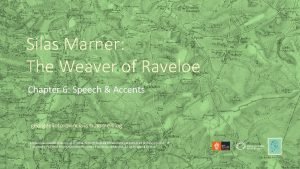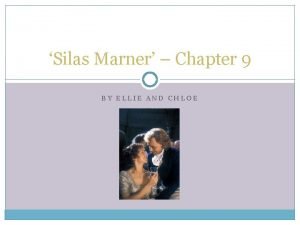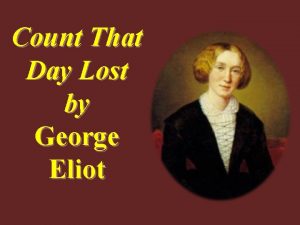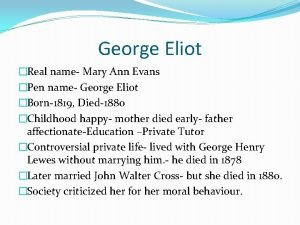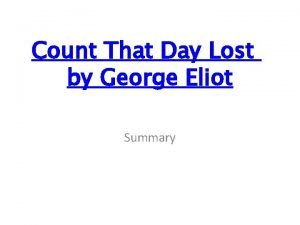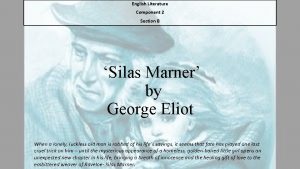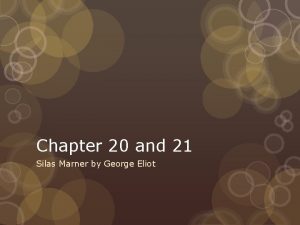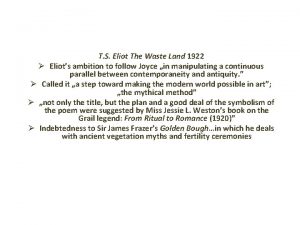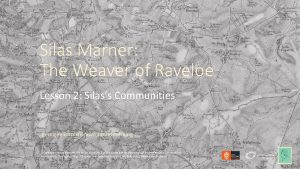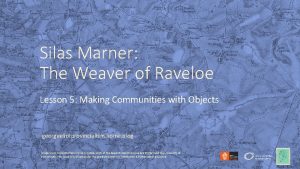George Eliot Silas Marner Main Events in Eliots







- Slides: 7

George Eliot & Silas Marner

Main Events in Eliot’s Life �Born: Mary Anne Evans (also Mary Ann or Marian) on Nov. 22, 1819 �Daughter of a Warwickshire mill-owner �Had some formal education but had access to local estate’s library - autodidact. �Grew up in an Anglican home around Protestants who had left C of E. �Mother dies when Eliot’s in 16. �Befriends the Bray’s (philanthopists) and meets numerous writers (including Emerson) �Struggles with religion.

Warwickshire, England

Main Events in Eliot’s Life � 1850: Moves to London to write. Becomes editor of a literary magazine (uncommon for the time) � 1851: Meets married philosopher George Lewes � 1854: Left wife for Eliot (but no divorce possible) �Lewes and Eliot live as man and wife until he dies in 1878. �May 1880: Legally marries John Cross (20 years younger than her). �Dec. 1880: Eliot dies from throat and kidney infection.

Eliot’s Novels �Leading writer of the Victorian era �Best known as a novelist, but also a poet �Best known for Middlemarch (1872) �Some other novels: Adam Bede (1859) The Mill on the Floss (1860) Silas Marner (1861) Romola (1863) Felix Holt, the Radical (1866) Daniel Deronda (1876)

Eliot’s Literary Reputation �Known for: Realism Insight into psychology of characters from different classes Influenced by Greek tragedy Discussions of religion and class difference Focused on the countryside over town �Interesting Facts: Wrote under pen name to avoid being categorized as “female” writer (aka romance writer). Worked as a translator

Silas Marner �Thought of as Eliot’s most concise work – tightly woven – no spare words. �THEMES religion industrialization chance vs. God nature vs. nurture love and greed class difference independence vs. community
